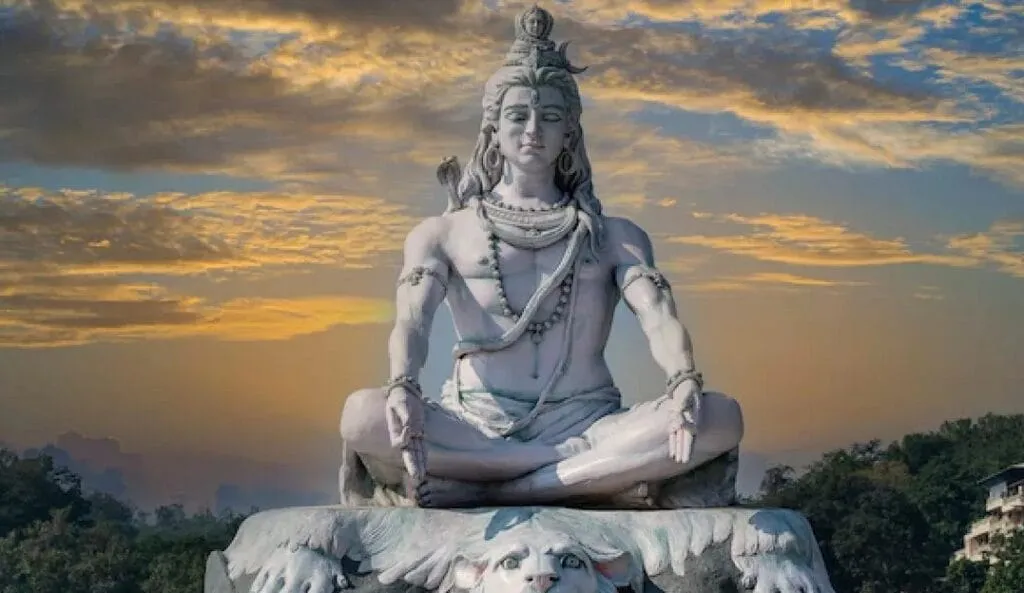
1. What Is Sawan Somwar?
Sawan (also called Shravan) is the fifth month of the Hindu lunar calendar, typically celebrated during the peak monsoon period. It is dedicated to Lord Shiva, the supreme deity of transformation and destruction. The Mondays (Somwars) during this month are considered highly auspicious and are observed as Sawan Somwar Vrats (fasts) by millions of devotees.
2. Why Sawan Somwar Is Sacred
From ancient scriptures such as the Shiv Purana, it is stated that during Sawan, Lord Shiva’s use of Halahala poison—which turned his throat blue—ensured the world’s survival. Devotees believe Shiva grants special blessings during this month. Fasting on Sawan Somwar is believed to:
- Fulfill desires, including health, prosperity, marriage, and children.
- Promote spiritual growth and self-discipline through austerity.
- Bring divine grace and forgiveness, especially with sincere ritual observance.
3. Sawan 2025 Dates & Regional Differences
In 2025, the start and end dates of Sawan vary across India due to two lunar calendar systems:
- North India (Purnimanta Calendar):
- Begins: 11 July 2025 (Friday)
- Ends: 9 August 2025 (Saturday)
- South and West India (Amanta Calendar):
- Begins: 25 July 2025 (Friday)
- Ends: 23 August 2025 (Saturday)
- Nepal & Himalayan Solar Calendar:
- Begins: 16 July 2025
- Ends: 16 August 2025
4. Sawan Somwar Mondays in 2025
For devotees in North India, the four Sawan Somwars fall on:
- 14 July – First Sawan Somwar
- 21 July – Second Sawan Somwar
- 28 July – Third Sawan Somwar
- 4 August – Fourth Sawan Somwar
For those following the Amanta calendar (South/West India):
- 28 July – First Somwar
- 4 August – Second Somwar
- 11 August – Third Somwar
- 18 August – Fourth Somwar
5. First Sawan Somwar 2025: July 14
Date: Best observed on Monday, 14 July 2025, aligning with Shravan Krishna Paksha .
Auspicious Timings:
| Timing | Time Slot |
|---|---|
| Brahma Muhurat | ~4:15–5:04 AM |
| Abhijeet Muhurat | ~12:00–12:55 PM |
| Amrit Kaal | 11:21 PM (Jul 14)–12:55 AM (Jul 15) |
| Optimal Puja Time | ~11:38 AM–12:32 PM |
6. Sawan Somwar Rituals (Puja Vidhi)
🔹 Morning Preparation
- Wake up during Brahma Muhurat, take a purifying bath, and wear clean clothes (preferably white or yellow).
- Make a sacred sankalp (vow) to observe the fast with devotion.
🔹 Abhishek (Ritual Bathing of Shivling)
- Use holy water (Gangajal) and Panchamrit (a mixture of milk, yogurt, honey, ghee, sugar).
- Offer items like bilva leaves, fruits, flowers, dhatura, and datura.
🔹 Mantra Chanting & Aarti
- Recite powerful mantras like “Om Namah Shivaya” or the Mahamrityunjaya Mantra 108 times.
- Conclude with Shiva Aarti and devotional hymns (bhajans or chalisa).
🔹 Fasting
- Some observe full-day fasts; others may include sattvic foods like fruits, milk, sabudana, kuttu flour, etc.
🔹 Daan & Breaking the Fast
- Offer charity—food, clothes, etc.—to Brahmins, saints, or the needy.
- Break the fast the next morning after reciting prayers and sharing prasadam.
7. Essential Do’s & Don’ts
✔️ Do:
- Maintain mental purity and avoid negative emotions.
- Stay consistent and disciplined.
- Use only fresh, sattvic ingredients in offerings.
- Attend a temple or perform Rudrabhishek at home.
❌ Don’t:
- Consume impure or tamasic food (onions, garlic, non-veg, alcohol).
- Ignore rituals or treat fast as a casual health trend.
- Interrupt mantras with distractions; perform rituals with full concentration.
8. Spiritual, Health & Cultural Benefits
- Spiritual Growth & Devotion: Fasting enhances internal focus and divine connection.
- Cultural Participation: Involvement in Kanwar Yatra, temple offerings, bhajans, and festivals like Shravan Shivratri (23 July) foster community bonding.
- Health Reset: A sattvic diet and monsoon season rest promote digestion and detoxification .
9. Kanwar Yatra & Related Festivals
Kanwar Yatra: Devotees carry Ganga water during this period to offer at Shivlings, with schools closing in UP/Haryana due to heavy traffic on Sawan Somwar Mondays .
Additional Shravan highlights include:
- Shravan Shivratri (23 July)
- Hariyali Amavasya (24 July)
- Hariyali Teej (27 July)
- Nag Panchami (29 July)
- Raksha Bandhan (9 August)
10. Province-Based Calendar Differences
- South-West India (Amanta): 25 July–23 August, Somwars on 28 July, 4, 11, 18 August.
Always refer to your local panchang for accurate dates.
Why Sawan Somwar Matters Today
- Timeless Devotion: Rooted in legacy and scripture.
- Resilience & Redistribution: Fasting offers physical detox and mental discipline.
- Communal Renewal: Unites communities through ritual, charity, and pilgrimage.
- Cultural Heritage: Maintains practices and faith across generations.
📌 In Summary
- First Sawan Somwar 2025: Monday, 14 July—a day of worship, fasting, waterfalls of blessings.
- Somwar Dates (North India): 14, 21, 28 July & 4 August.
- Ritual Guide: Includes sacred bath, abhishekam, mantra chanting, aarti, fasting, and daan.
- Spiritual Benefits: Fulfillment of vows, internal cleansing, mental clarity.
- Cultural Context: Celebrated with rituals, Kanwar Yatra, and related festivals.
